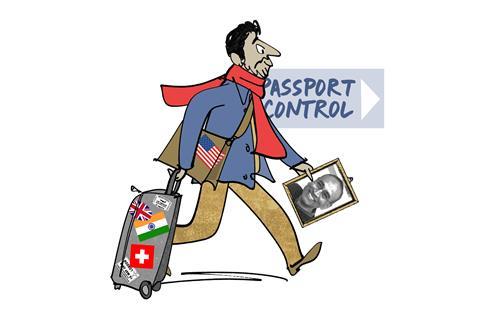Why diversity and inclusion should go hand-in-hand

Imagine moving to a new place you have never visited before, where people don’t seem to (or prefer not to) speak much English, let alone your native tongue. Where people look different from you or have different cultural beliefs and practices. How do you develop a rapport with your colleagues or make friends? This was my life when I moved from Chennai, Tamil Nadu, in southern India, to Baroda in the western Indian state of Gujarat, where I decided to pursue a research fellowship after my master’s in chemistry. In the lab, my colleagues did not seem to want to share established protocols with me, whereas outside the lab, everybody saw me, a person who spoke neither Gujarati nor Hindi, as an outsider. Little did I know that this experience would prepare me with the resilience I needed for a life abroad.
Reassured by the presence of a diverse international community in the US, and the success and happiness of my limited network of friends over there, I decided to experience what I believed to be a meritocracy first-hand. It gave me strength and inspiration when I learned that the Nobel prize winner Venki Ramakrishnan, who also hailed from Tamil Nadu, had studied in Baroda before moving to the US for his graduate studies.
At first, my experience was positive. Coming from India where I was paid the equivalent of roughly $125 for the preceding three-year period, I found the PhD assistantship beyond comfortable for myself in Iowa where the cost of living is reasonable. But travelling home once per year was a luxury as I needed to set aside a month’s salary to finance my trip.
A few months into my PhD, I decided to marry and have my partner join me in the US. This meant saving every possible cent, limiting opportunities to interact and network outside work. The typical stipend, although sufficient for one person, does not provide enough to sustain a family. While native students supplemented their income with a second job or their partner’s salary, student visa restrictions did not allow my wife or me to work. To secure our futures, the only possibility left was for my wife to pursue a second postgraduate degree and deal with tuition debt and low stipends herself. Fortunately, we were both supported by scholarships and awards, which partially relieved the financial burden.
Well-supported, happy families surely only make things better
In the summer of 2020, my wife and I had a hard time deciding whether we wanted to move from the US to Switzerland for my postdoc, where I received an offer to work with one of the top research groups in my field. This meant giving up our three-year employment authorisations that were tied to our student statuses in the US. But as my wife had no job immediately in sight, moving to Switzerland, where partners are legally permitted to work, seemed like the right choice. We did not realise that finding a job in Switzerland relies on learning the local language, networking and recommendations, with the pandemic only making things harder. Two years later, my wife’s search for a job continues.
University-organised international scholars or spouses’ events bring members of this community together to a certain extent. But as a whole, the scientific enterprise has a long way to go towards enabling integration into society and building cross-cultural relationships that can only further enhance productivity and happiness. Orientation events and opportunities to network with locals could be excellent avenues to start this process. Universities could also organise free training events that help dependents prepare for the job market, permit them to participate in career fairs, and actively help them to find employment.
When I met Prof. Ramakrishnan at the Lindau Nobel laureate meeting earlier this summer, he mentioned that his family was not keen on moving again once they had moved to Cambridge after his several career jumps. I understand why. My wife does not want to move endlessly, though we may still move again if it works for both of our careers.
Although working abroad is an enriching experience, privilege plays a large role in determining the ease with which one settles into the new culture and the development of their personal life. Not all graduate students are financially secure or adjust as easily to new cultures, which can negatively impact their academic performance and mental health. Well-supported, happy families surely only make things better.
I don’t mean to be discouraging, my wife and I have had many wonderful experiences and have met great people along the way, encouraging us to continue on this path of discovery and stay positive. But it is important to accept that international scholars are not in the same boat as locals and proactively enable a smoother life-work transition for them. If peers are paid the same salary, and some have disproportionally – and unavoidably – higher expenditures, can they still be considered equals? If employers want to benefit from a more diverse workforce of researchers, they need to provide adequate benefits so internationals can live their lives as equals.












No comments yet